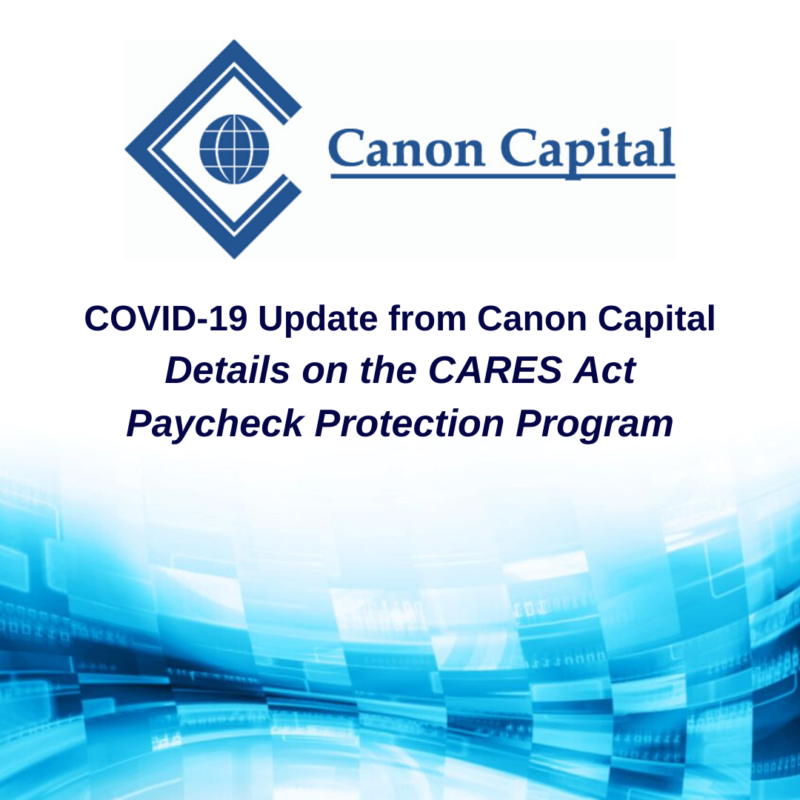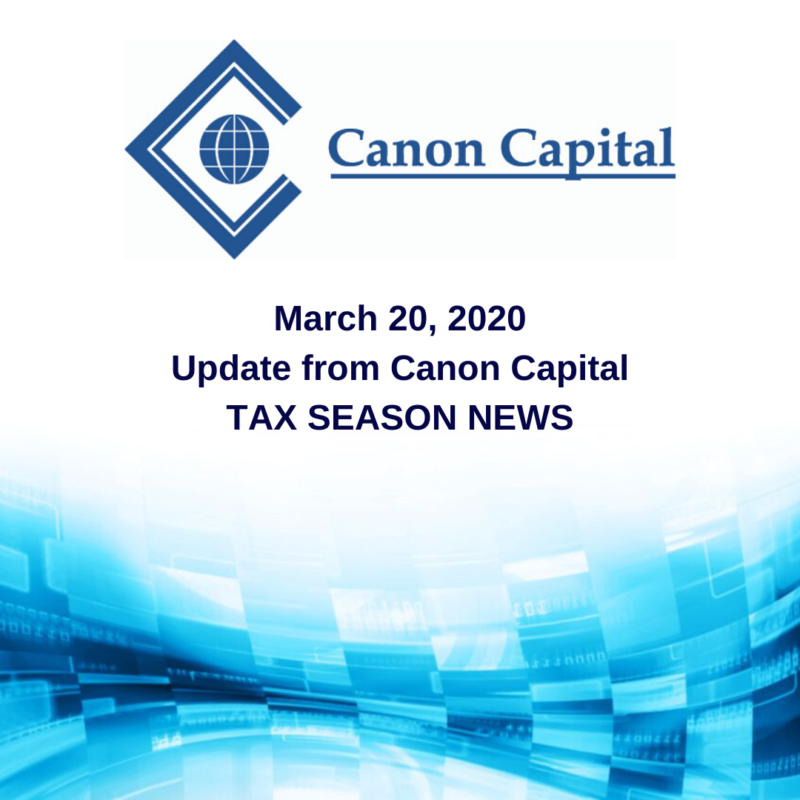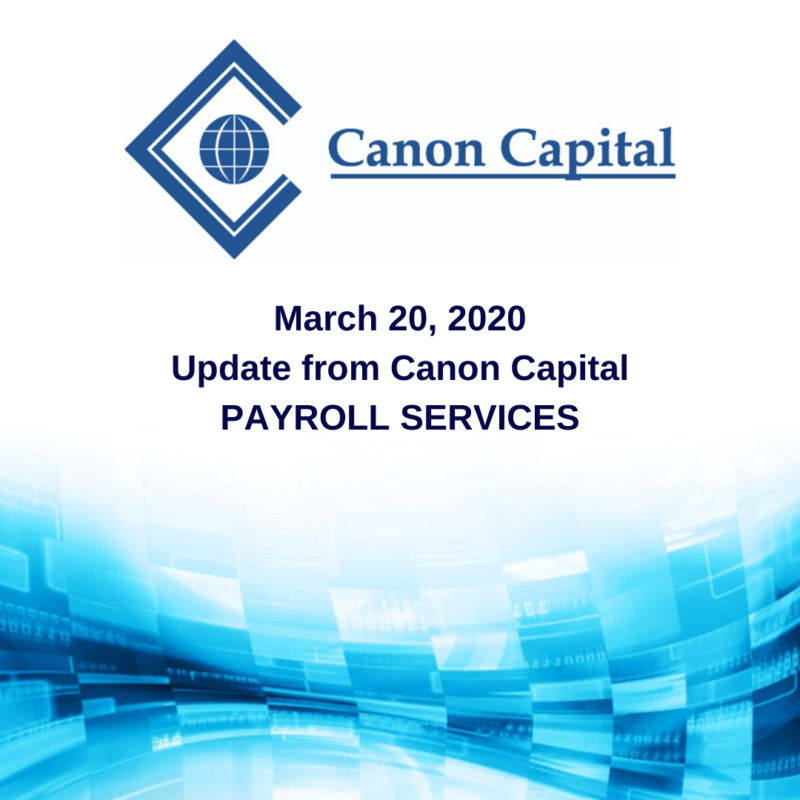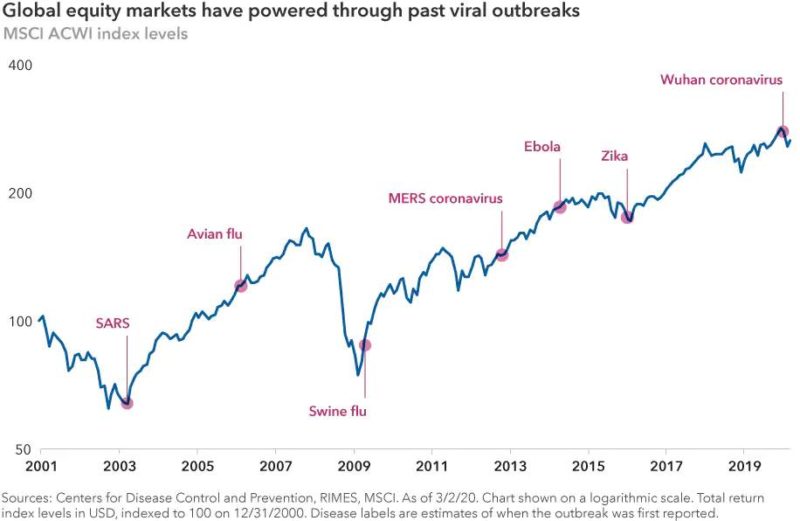While there is much, much more contained in the CARES Act (Coronavirus, Relief and Economic Security Act), here is a brief summary rundown of one part – the Payroll Protection Program (PPP). The PPP is a modification of the SBA’s 7(a) program, in which the SBA partially guarantees loans made by banks to qualifying small businesses. The 7(a) program is modified in four ways: (1) to expand the businesses that are eligible for loans, (2) the loan terms to exclude the guarantee and collateral requirements, (3) allowing a portion of the loan to be forgiven if the borrower maintains payroll, (4) modifying the provision to incentivize banks to make the loan process more efficient and faster.
Who is Eligible?
Businesses and 501(c)(3) non-profits that:
- Employ not more than
- 500 employees (full time, part time, or other basis) or
- if applicable, the SBA size standard based on NAICS code
- Certain sole-proprietors
- Independent Contractors
- Other self-employed individuals
- Financial Businesses, passive businesses, foreign businesses, gambling businesses and private clubs are NOT eligible for PPP loans
Who can make these loans?
Any lenders with delegated authority from the Small Business Administration (SBA). The lender will evaluate the eligibility of the borrower under the PPP through:
- Businesses were in operation as of February 15, 2020 and
- Had employees for whom the borrower paid salaries and payroll taxes OR paid independent contractors, as reported on Form 1099-Misc
How soon will the loans be available?
Currently, SBA is re-working their website to be able to take these loan applications. There’s obviously a lot of pressure on them to make a timely, simple, streamlined online process. Since the government is expecting to forgive most of the loans, there is much less underwriting needed. Thus, we believe the SBA and banks will have something in place a couple of weeks from the March 27, 2020 date when this became law.
When can I apply for the loan?
The law reads that you may apply for the loan now through June 30, 2020. Based on the above, we recommend you gather the following documents and have them ready:
- 2019 List of payroll paid by employee.
- Proof that you were in business on 2/15/20.
- There will be more but this information is not out yet.
For our payroll service clients, we have shifted two full-time staff accountants over to payroll services in order to expedite first quarter payroll tax returns. These can serve as proof in business as of February with employees. The other payroll calculations and information will be based on the date of the loan application.
How much can I borrow?
The maximum loan amount under the PPP is the lesser of:
- The average total month payments by the applicant for payroll costs incurred during the 1-year period before the date on which the loan is made multiplied by 2.5*
- PLUS, any outstanding amounts of any Emergency Injury Disaster Loan obtained on or after January 31, 2020, which is to be refinanced under this loan,
- OR $10,000,000
Payroll costs include the sum of payments of any compensation with respect to employees that is:
- Salaries, wages, commissions, similar compensation but limited to $100K per employee.
- Cash tips or equivalent
- Paid leave for vacation, parental, family, medical or sick leave
- Allowance for dismissal or separation
- Payments for group health benefits including insurance premiums
- Payment of retirement benefits
- State/local tax assessed on employee compensation
- Some payments to independent contractors
Payroll costs DO NOT include:
- Compensation of an individual employee’s in excess of $100,000 as prorated from February 15, 2020 to June 30, 2020
- Taxes withheld from employees and contractors
- Compensation of an employee who resides outside the U.S.
- Qualified sick leave of family leave wages under the recently passed Families First Act
What can the proceeds be used for?
Between February 15, 2020 and June 30, 2020, the business can use the proceeds for the following:
- Payroll Costs as defined
- Continuation of group health care benefits during periods of paid sick, medical, family leave, and insurance premiums
- Interest on a mortgage obligation
- Rent
- Utilities
- Interest on debts incurred before February 15, 2020
Are there any fees, collateral, or guarantee requirements?
There are no fees, collateral, or personal guarantee requirements with PPP loans. The loan is non-recourse.
How is the loan forgiven?
After 60 days from the date of the loan, any repayment of the loan proceeds will be forgiven for the actual costs incurred of defined expenses during the 60-day period. As part of the forgiveness eligibility, a business cannot:
- Reduce its employee count on a full-time equivalent basis
- Reduce compensation to certain employees by more than 25%
- Prepay any debt
If loan proceeds are not used for defined expenses during the period, or a business reduces its workforce, loan proceeds will be partially forgiven. Employers are encouraged to rehire any employees who have already been laid off. Businesses that re-hire workers previously laid off will not be penalized for having a reduced payroll at the beginning of the 60-day period and the payroll costs of such employees are eligible for forgiveness.
Documentation will have to be provided to the lender, and certifications will have to be made to establish any loan forgiveness. If this is not done timely, none of the proceeds will be forgiven.
Any loan amounts forgiven will not be considered taxable income to the recipient.
What happens if there is only partial loan forgiveness?
The SBA is providing complete payment deferment relief for borrowers between 6 months and 1 year. Thereafter, the balance of the loan not forgiven will be amortized over a 10-year period, with fixed interest and principal payments, with an interest rate not to exceed 4%
Please keep watch for updates as more information becomes available. Receive updates via email by signing up for our e-news. Visit CanonCapital.com and scroll to the bottom to sign up.









 Chuck Porter, Jr. has been with Canon Capital since 2006 and was admitted to the company as a unitholder (owner) in 2018. He is a Senior Investment Advisor specializing in serving high-net-worth individuals and families. Chuck graduated from Widener University where he majored in Economics with an emphasis in Personal Financial Service. He has a Certificate in Financial Management for the Family Office from Pepperdine University’s Graziadio School of Business and Management and he is an Accredited Investment Fiduciary.
Chuck Porter, Jr. has been with Canon Capital since 2006 and was admitted to the company as a unitholder (owner) in 2018. He is a Senior Investment Advisor specializing in serving high-net-worth individuals and families. Chuck graduated from Widener University where he majored in Economics with an emphasis in Personal Financial Service. He has a Certificate in Financial Management for the Family Office from Pepperdine University’s Graziadio School of Business and Management and he is an Accredited Investment Fiduciary.
